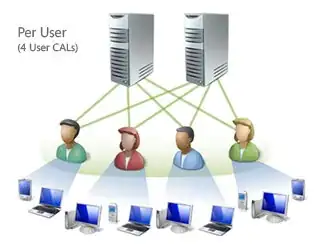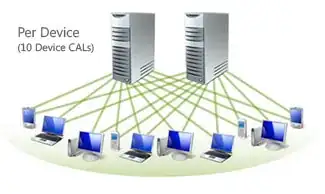Possible Duplicate:
Can you help me with my software licensing question?
Suppose I have a windows 2003 server which hosts 500 roaming profiles. Do i need 500 cals for each user accessing his profile. How does this work?
Possible Duplicate:
Can you help me with my software licensing question?
Suppose I have a windows 2003 server which hosts 500 roaming profiles. Do i need 500 cals for each user accessing his profile. How does this work?
This Microsoft Volume Licensing CAL Guide will probably spell out everything you need to know.
User CALs:
With the User CAL, you purchase a CAL for every user who accesses the server to use services such as file storage or printing, regardless of the number of devices they use for that access. Purchasing a User CAL might make more sense if your company employees need to have roaming access to the corporate network using multiple devices, or from unknown devices, or simply have more devices than users in your organization.

Device CALs:
With a Device CAL, you purchase a CAL for every device that accesses your server, regardless of the number of users who use that device to access the server. Device CALs may make more economic and administrative sense if your company has workers who share devices, for example, on different work shifts.

And on a slight technicality, if you purchase User CALs, you only need one per user, not 500 per user..
No.
You need NONE, provided every MACHINE retrieving the profile has a CAL assigned to it.
Now, the user probably has a CAL anyway, as... guess what ;) There are other computers it needs.
If not, you need ONE CAL FOR EVERY USER.